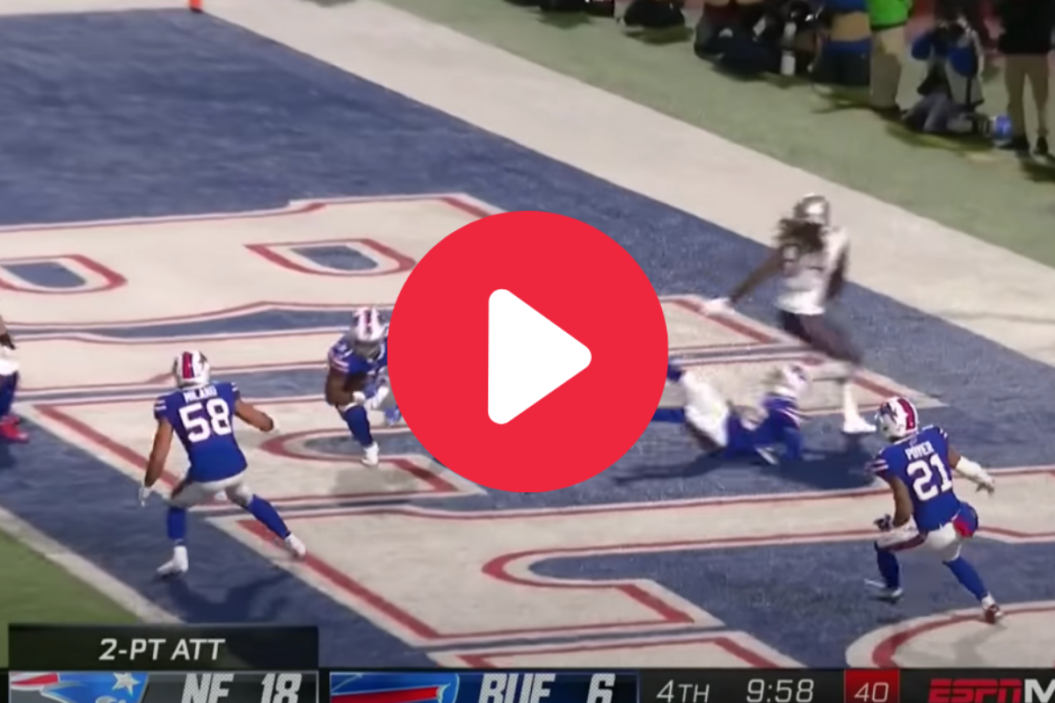Quirky trick plays are the staple of any exciting postgame discussion. While it's really uncommon for many gadget plays to work to perfection, their bizarre nature comes as a welcome treat every time a team pulls one off. When it comes to the NFL though, crazy rulings are more common than trick plays these days.
Videos by FanBuzz
While NFL rules can be confusing at times, there is one rule that no one has ever seen applied in an actual game, and we almost saw it during the New England Patriots rout of their divisional rival on Monday Night Football in 2018.
Yes, the one-point safety is a real thing, and leave it to the Buffalo Bills to almost surrender the first one in NFL history.
What is a 1-Point Safety?
The one-point safety is so rare, it's NEVER happened in the NFL. pic.twitter.com/fzm7E0NOyE
— SB Nation (@SBNation) September 21, 2017
According to the NFL's scoring rules under Section 11-3-2-C, the rare one-point safety is awarded when a safety occurs by either team during a "try," or a point after try such as a two-point conversion or extra point attempt.
When the Patriots lined up for a 2-point conversion following James White's one-yard rushing touchdown, Tom Brady's pass to Cordarrelle Patterson was intercepted by Bills linebacker Julian Stanford. When Stanford started to bring the ball out of the end zone, he fumbled the ball before crossing the goal line, and it was recovered by Buffalo in the end zone.
Now, if the defensive player had crossed back into the field of play and fumbled, then Buffalo recovered possession of the ball back inside their own end zone, it would by rule be a safety, and New England would have been awarded a single point.
Football Zebras described what the wild ruling would have been had it been recognized, and confirmed that it has never been applied in the NFL before.
How the 1-Point Safety Almost Happened
To clarify on the BUF intercepted 2-pt try. It is a fumble IN their own end zone, so on their recovery, it would ordinarily be a touchback, therefore it is just a failed try. If the fumbled ball came from the field of play INTO the EZ, the Bills recovery would be a 1-pt safety
— Fᴏᴏᴛʙᴀʟʟ Zᴇʙʀᴀs🇺🇦 (@footballzebras) October 30, 2018
Not in the NFL, because the rules before 2015 made it exceedingly difficult. It has happened in college, and @QuirkyResearch has probably the most comprehensive list. https://t.co/sN9YHT0HC8 https://t.co/KiyzMqn5UA
— Fᴏᴏᴛʙᴀʟʟ Zᴇʙʀᴀs🇺🇦 (@footballzebras) October 30, 2018
RELATED: The 11 Craziest Trick Plays in College Football History
Welcome to a world where you now know that the one-point safety is actually a legitimate thing.
It's so rare that Quirky Research only found five previous applications of the rule in NCAA history, and only twice has it happened in a major Division I college football game. One of them occurred during a 2004 meeting between Texas and Texas A&M, and the other happened on a strange sequence during the 2013 Fiesta Bowl between the Oregon Ducks and Kansas State Wildcats, when a blocked kick on an extra point attempt resulted in an unusual scoring play for the Ducks.
Oregon's One-Point Safety
New England didn't need the two-point conversion attempt, extra point, or the 1-point safety during their dismantling of an over-matched Buffalo Bills team by the final score of 25-6. Tom Brady threw for 324 yards and cornerback Devin McCourty sealed the game with an 84-yard interception return for a touchdown.
The next time your team is lining up to defend a point-after attempt, hold your breath because the first case of the one-point safety could strike the NFL at any time.
This article was originally published October 30, 2018.
